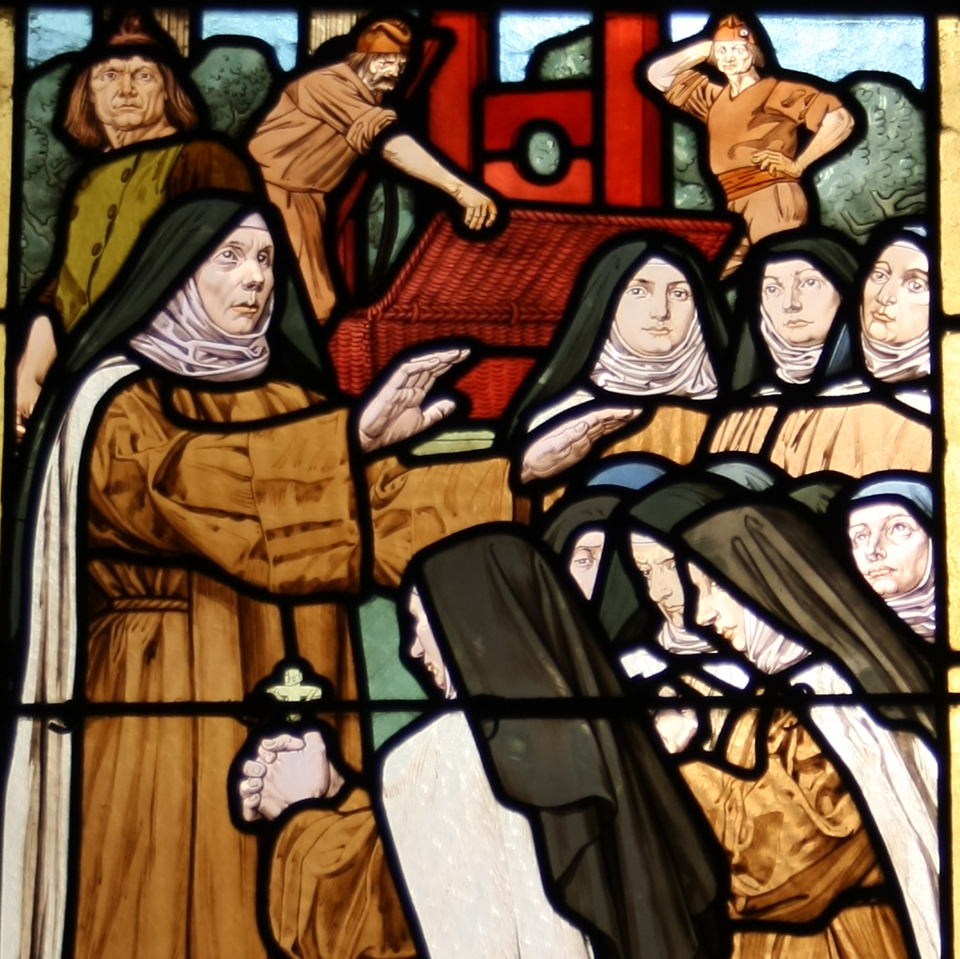I think that it is worthwhile today to remember the Sixteen Martyrs of the Carmel of Compiegne in France.
These eleven nuns, three lay sisters and two externs were killed by the order of the Committee for Public Safety, an agency of the National Convention of Revolutionary France. They were murdered in a public execution by guillotine on July 17, 1794.
Today is the anniversary of their martyrdom.
The sisters lived in a Carmelite convent of the Teresian reform (the reform of the great saint Teresa of Avila). This meant that their observance of their vows was strict and their lives were completely cloistered. They entered Carmel with the intention of never leaving its enclosure. There, in that space, they lived a life of prayer for the sake of the world by living apart from the world.
This commitment was also their crime.
The revolutionary government of France declared that the sisters of the Carmel of Compiegne were enemies of the state. Why? Because of their radical renunciation of worldly concerns, the consecration of their lives in humble service of Christ, and their observance of prayer as a total way of life. All this was considered to be a crime because it resisted what the state had determined and declared to be acceptable and reasonable behavior.
The sisters defied this ban on their way of life. They were arrested, placed on trial, accused of treason, sentenced to death.
The sisters were then transported to the town center where a frenzied mob awaited them.
But this execution would be different.
The mob was stunned to silence by the appearance of the sisters, who, even though bereft of their religious garb, bore themselves with a dignity that was described by an onlooker as akin to a bride presenting herself for marriage.
The silence was broken only by the singing of the sisters as they chanted the hymn “Veni Creator Spiritus.” One by one, the sisters made their way to the guillotine, youngest to oldest, each sister pausing to kneel before the Prioress, asking, “Permission to die, Mother.” To which the Mother Superior responded, “Go, my daughter.” The state had ordered their deaths, but their final act of obedience was not to the state, but to their mother in religious life.
The Mother Superior was the last to be killed.
The revolutionary government of France fell ten days after the execution of the sisters.
The execution of the Carmelite Sisters of Compiegne is a sign that manifests the necessity of religious freedom as a privileged foundational principle to ensure a just social order. It likely became utterly clear to the people of France that a government that would execute sixteen nuns for daring to assert that their unique way of life transcended the power of the state to rule and regulate would likely kill anyone. No one would ever be safe.
There are forces in our culture and in our world that, even right now, are pushing with ever greater force against the principle of religious freedom.
We owe it to the memory of the Sixteen Martyrs of Compiegne to resist these forces, and to resist with the same weapons of the Holy Spirit that they employed and that ultimately brought them victory.
